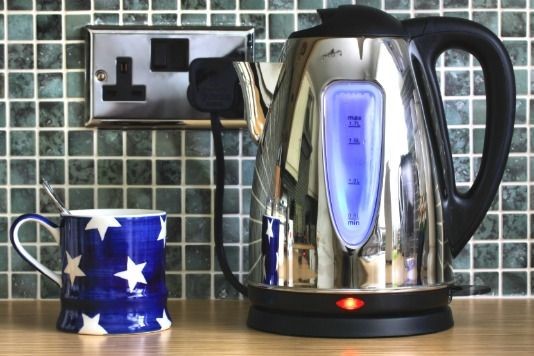Your Union menu
Build Confidence
The Students’ Union is an independent charity that exists to advance your education at the University of Portsmouth through a range of exciting services and activities. Our mission is to have a positive impact with every Portsmouth student: Students are heard, students are empowered, students thrive.
Elections menu
information
The Students’ Union Elections.
Get Advice menu
Get Advice
Campaigns and Info
At UPSU's Advice Service, we offer confidential, impartial and non-judgemental support on a range of academic and university issues that may affect your experience. Our team of trained advisers are on hand all year round to offer help where it's needed. The independent service works closely with the University of Portsmouth to resolve issues and ensure students are treated fairly.
Representation menu
UPSU are here to represent every student at the University of Portsmouth. We have many ways you can express your student voice, including: our Course Rep system, Have Your Say, Student Council, StART, Hot Topic, Annual Survey, Focus Groups, and more! Click on the tabs to learn more about each platform regarding Representation! You can also see a summary of our research by clicking on the UPSU Research & Data page.
Student Groups menu
Contact Us
Student Groups are a great development opportunity and a great place to find new friends, build a community and have a sense of belonging whilst at University!

Government Energy Rebate - where does that leave students?
What does this mean? How does this impact me?
- Posted Wed, Dec 14, 2022 3:53 PM

You’ve probably been hearing a lot about the cost of living crisis - and maybe you’ve heard about the £400 energy rebate promise. But what does that mean for students? We did some digging to find out.
There are some differences depending on what your arrangement is. A lot of students live in properties that they rent from a private landlord, or estate agent (if you are looking for resources to find alternative housing, contact the Student Housing helpline).
From here, it depends what your bills situation is.
You might live somewhere that is bills-exclusive - this means that your household is responsible for setting up and paying your own bills, such as finding a Wi-Fi provider. If this is the case, you are entitled to the rebate, and it should be automatically applied (there are some differences depending on how you pay your bills - we’ll get into that in a minute). It’s important to remember, however - the rebate is per household, not per person, so the rebate should be shared between all of you.
Students who live in bills-inclusive houses have a bit more of a complicated time, sadly. There are a lot more factors depending on how your landlord has responded to the crisis.
- If your landlord has raised your rent to cover the energy cost, you should be entitled to the rebate. This is because you (and/or your household) are feeling the financial effects of the crisis, and as such the rebate should go to you. We would advise you to contact your landlord - the housing team can help with this, and the UK Government has published a template letter that may help you.
- If your landlord can raise your rent but has chosen not to, they are entitled to keep the rebate, as they are taking the financial burden in order to protect you and/or your household. This is only for whatever covers the cost, though - so if they only need £250, the other £150 should go to you.
- We said “if they can”, because your landlord may be in a position where they can’t raise your rent, such as an ongoing tenancy agreement - check out the government guidance to find out more. In this case, it’s even more complicated than it was before.
- If your landlord predicted the cost of living crisis and raised your rent as a precautionary measure, you should be entitled to the rebate. If they did not, they also do not have the option to do this now, so they may argue that they are keeping the financial burden. Unfortunately, there is no official guidance either way for this particular scenario, so if you are having trouble settling with your landlord, consider contacting our Advice Service.
A large population of our students also live in halls, and we don’t blame them. They’re conveniently located all across campus, and very cosy. But where does that leave you in the energy crisis?
Unfortunately, there is no official guidance either way as to whether the students themselves are entitled to the rebate. In most cases, the rent is priced appropriately to cover bills, so that does put the financial burden on students. We would advise that students contact their halls directly to discuss this; if students need any help with this, they can contact the Housing Team, or the Advice Service.
Again, we should stress that the rebate is automatically applied, and you shouldn’t have to apply for it. We have received a lot of reports of students getting texts and emails inviting them to “apply” for the rebate - these are most likely phishing scams. We do not recommend clicking them or providing details.
Feel free to contact the Advice Service if you’re really unsure, and check out this cool article by TheMix that goes into more detail about phishing. The way it’s applied is down to how you usually pay your bills.
- Direct Debit: Either your Direct Debit will be reduced, or the money will be credited directly to your bank account.
- Standard credit: Standard credit is when you receive a bill and then pay it. In this case, the money should be credited to your energy account.
- Smart prepayment metre: This should also be credited to your energy account.
- Traditional prepayment metre: You should receive a voucher to use next time you top up.
- Any questions about the above can be answered by your energy provider, but the Union is always happy to help if students are unsure.
If you do receive the rebate, just be aware that it is broken down into monthly chunks, rather than a one-off payment. This should be a monthly payment of £66-67. At this point, the payments have already started (as of October 2022) so the amounts may vary. Again, it may be better to contact your energy provider.
You might also have heard about a £150 council tax rebate. Most students don’t pay council tax (part-time students may have to, depending on their hours). At the moment, the guidance is to contact your local council and ask for more information - some students in privately rented properties may be eligible.
A lot of the details are still vague when it comes to students, as students do often have more unique living situations than a lot of people. The Union does have a lot of resources available to help - please don’t be afraid to contact us if you have any questions.
And according to this article, running the dishwasher actually costs less in energy than washing the dishes by hand. Sounds like a victory.
Share Post
Post Tags
Latest Posts
Contact Us
-
Call: 023 9284 3628
-
Email: hello@upsu.net
-
-
Useful Links
Social Accounts

The University of Portsmouth Students’ Union has a vision of creating a positive impact with every Portsmouth student during their time at University.



